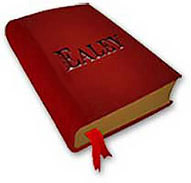The life of Edward Thomas Pinniger (c1839-1919) fictionalised by DeepSeek in the style of Hemingway
EDWARD Pinniger was born in Newbury, Berkshire, around 1839. His father, Broome, was a solicitor. His mother, Elizabeth, kept the house in order. There were three older children: Broome, James, and Alice. Edward was the youngest. The house on Market Place was quiet, except for the sound of his father’s pen scratching across paper. Edward didn’t remember much from those early years. Just the smell of ink and the way the sunlight fell through the windows in the afternoon.
When he was twelve, they sent him away to school. The Reverend Jacob’s School in Calne, Wiltshire. It was a gray stone building with narrow windows. The boys slept in cold dormitories and ate porridge in the mornings. Edward didn’t mind it. He liked the order of it. The way each day was the same. He learned Latin and mathematics. He learned to keep his back straight and his voice steady. He didn’t think much about the future. The future was something that happened to other people.
In 1855, he bought a commission as an ensign in the 58th Foot. The same day, he transferred to the 28th Foot. He didn’t know why. It didn’t matter. He was a soldier now. He wore a red coat and carried a rifle. He learned to march and to shoot. He learned to follow orders. Two years later, he transferred again, this time to the 8th Foot, the King’s Liverpool Regiment. They were going to India.
The ship was called the Indiana. It left Gravesend on March 5, 1858. Edward stood on the deck and watched the coastline disappear. The sea was gray and choppy. The men played cards below deck and talked about what they would find in India. Edward didn’t talk much. He watched the horizon and thought about nothing at all.
They arrived in Calcutta on May 24. The heat hit him like a wall. The air was thick with the smell of spices and sewage. The streets were crowded with people—soldiers, merchants, beggars. Edward didn’t know what to make of it. He followed his orders. He marched where they told him to march. He fought where they told him to fight. The days blurred together. The nights were long and hot.
In August 1859, he sold his commission and left the army. He was twenty years old. He didn’t know what else to do, so he stayed in India. He found work with the East Indian Railway. He became an inspector in the Telegraph Department. It was steady work. He liked the rhythm of it. The wires hummed with messages. He learned to read the code. He learned to fix the lines when they broke.
In 1863, he married Anna Eweler Oman. She was small and quiet, with dark eyes and a soft voice. They were married in Serampore Church. Edward wore a suit. Anna wore a white dress. Afterward, they went to Burdwan, where Edward had a house. They had a daughter, Anna Alice, in 1865. Then more children—Edward, Susan, Edith, Broome, John, Nelly, and Dorothy. The house was full of noise and laughter. Edward worked hard. He became a district inspector. He joined the Freemasons. He liked the rituals. The sense of belonging.
In 1881, Anna died of cholera. They buried her in Jhelum. Edward stood by the grave and watched as they lowered the coffin into the ground. The sun was hot on his back. He didn’t cry. He didn’t know how. Afterward, he went back to work. He became an assistant station master. He founded a Masonic lodge. He kept moving. He didn’t stop.
In 1896, he became a clergyman. He didn’t know why. Maybe he was looking for something. Maybe he just needed a change. He became the Railway Chaplain in Lucknow. He baptized babies and married couples and buried the dead. He liked the work. It was quiet. It gave him time to think.
He retired in 1913. He was seventy-four years old. He lived alone in a small house near the railway station. He read books and wrote letters. He visited his children when he could. He didn’t talk much about the past. There was no point.
On November 18, 1919, he died of a cerebral hemorrhage. They buried him the next day in the Civil Cemetery in Lucknow. The grave was simple. A stone with his name and the dates. No epitaph. No words. Just the facts.
Edward Pinniger lived a long life. He was a soldier, a telegraph inspector, a Freemason, a station master, a clergyman. He was a husband and a father. He saw the world change around him. He adapted. He survived. He didn’t ask for much. He didn’t expect much. He just kept moving forward, one step at a time.
In the end, that was all anyone could do.

